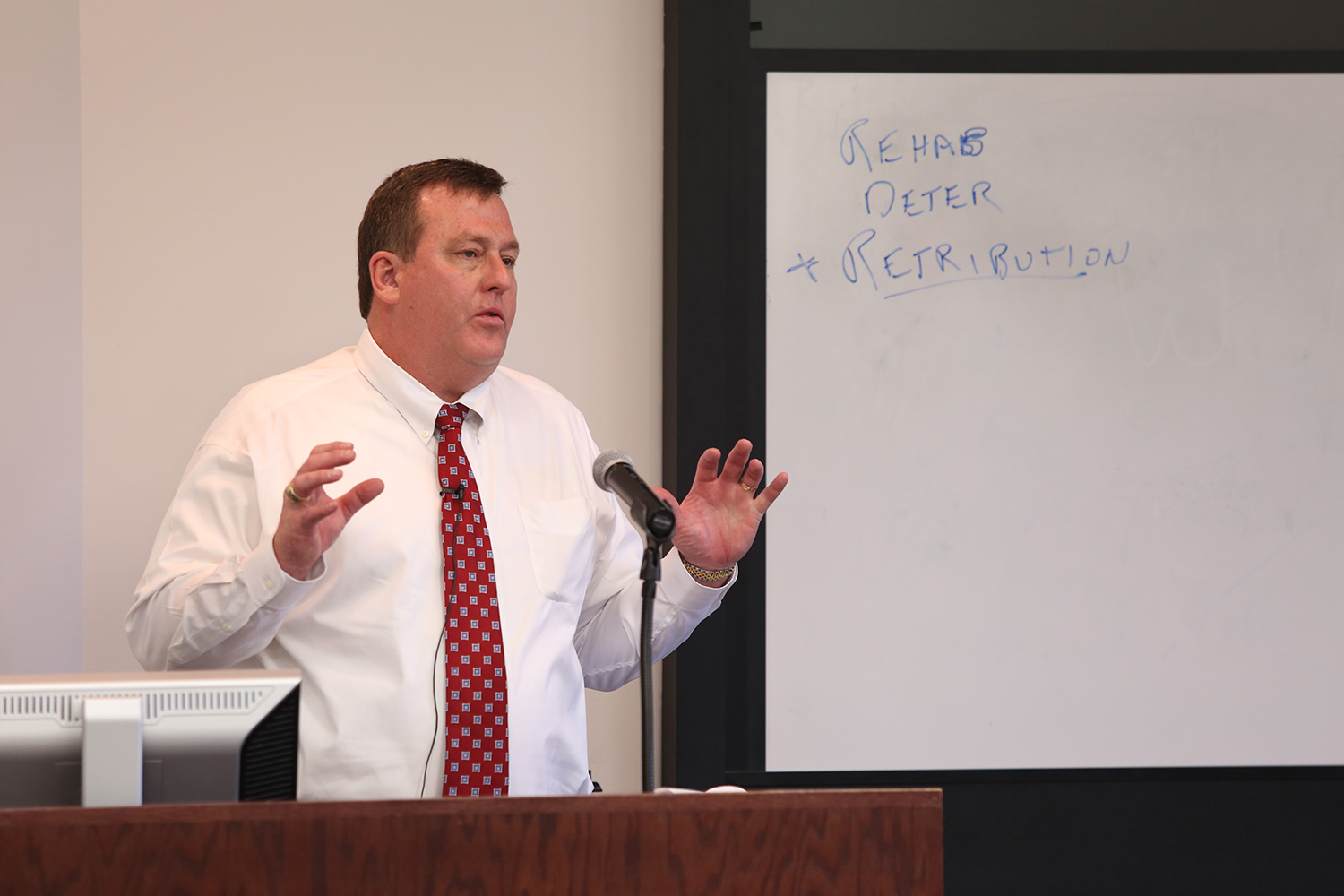Raley Visits OBU Campus, Speaks to Students on Criminal Justice
April 8, 2016
Silence echoed the room as Texas attorney John Raley prepared to take Raley Chapel’s Potter Auditorium stage to answer questions following a screening of “An Unreal Dream: The Michael Morton Story.” More than 500 students and OBU community members sat in contemplation of the 2012 documentary.
Raley ascended the steps, ready to end the silence in a building – the cornerstone of OBU – named in honor of his grandfather.
“It’s very special to me to be in this Chapel,” said Raley. “It’s been such an important part of my life, my whole life.”
Hosted by OBU’s Center for Faith and Public Life, Raley’s April 7 visit included an afternoon session focusing on Christian ethics in public policy, followed by the evening documentary screening.
Raley cited one of his favorite lines in “To Kill a Mockingbird,” in which, Atticus says to Scout, “By nature of the practice, every lawyer gets one case in his life that affects him personally. This one is mine, I guess.”
“And Michael Morton is mine,” Raley said.
Morton was convicted of the 1986 murder of his wife in their Texas home, wrongfully convicted at the hands of a prosecutorial team that made an unfair presumption of guilt after a lack of material evidence. The prosecution withheld evidence and details that would have cast reasonable doubt on his guilt, leading to a wrongful conviction.
The Innocence Project, a national litigation and public policy organization dedicated to exonerating wrongfully convicted individuals, learned of Morton’s case and fought to bring DNA evidence to light that could exonerate him. Raley worked in their behalf free of charge, leading the fight to DNA test a bloody handkerchief found near the murder scene. After a seven-year battle, the test confirmed Morton’s innocence and found a new suspect who was ultimately convicted of the crime.
He was given a 2013 Presidential Citation by the Texas State Bar in recognition of his work to exonerate Morton. The resultant landmark Michael Morton Act requires prosecutors to provide defense counsel free access to investigation information.
Raley said Morton’s case should bring grief to anyone who hears of it.
"If you don't think this could happen to you tomorrow, you’re wrong,” Raley said. “It could happen to anybody in this room. It could happen to me."
His visit coincides with the launching of two new degree plans at OBU, criminal justice and forensic psychology.
